Games user researchers apply UX and scientific best practices to design and run high quality playtests and research studies. These studies help designers make confident game design decisions. In this post we cover the essential games user research books and Games UX reading.
Working in Games UX and User Research is a popular career choice for people who have studied UX, Human-Computer Interaction or Psychology. It’s also popular with those transitioning from another UX role, or a bootcamp.
Being an effective UX designer or researcher requires developing deep study design, moderation and analysis skills. Great researchers also develop broad understanding of how games get made so that we can ensure our studies are impactful.
I often get asked by students or career transitioners what reading they should be doing to get up to speed. To help with this, I’ve put together this list of two sets of games user research books. The first is core research skills for games UX designers and researchers to learn what is expected from them. The second set is of broader games UX books to round out your games experience – giving you the context needed to make an impact.
Games user research books to develop your core skills
Recommended reading to become a better games user researcher or UX designer.
Games User Research – Anders Drachen, Pejman Mirza-Babaei, and Lennart Nacke
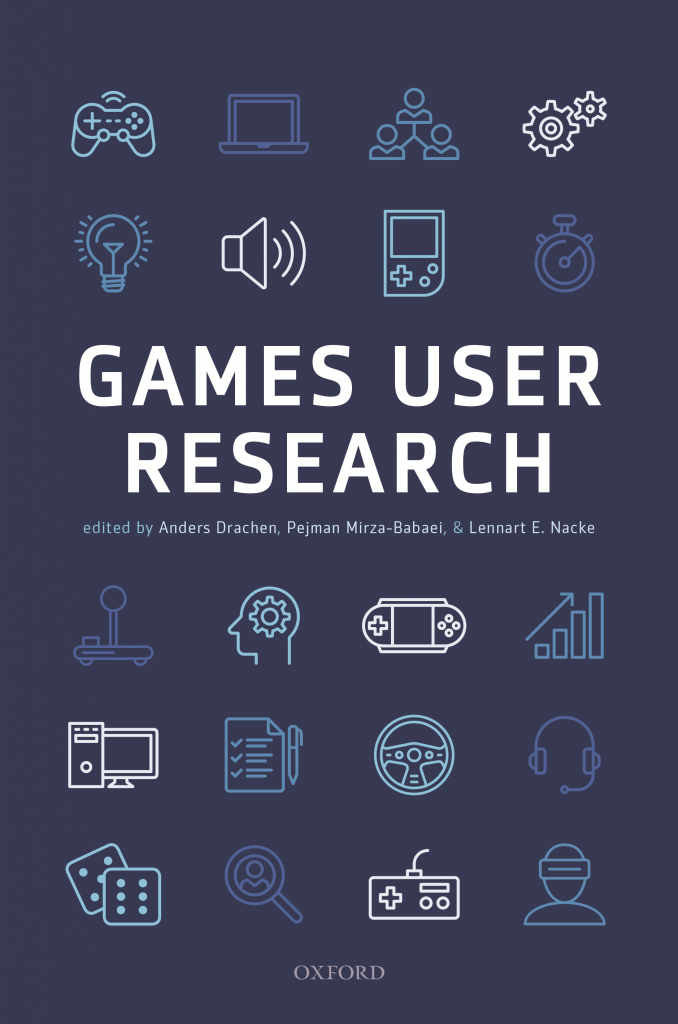
The Games User Research book draws together insight from top researchers across the insight to deep dive into many contemporary topics that are important for games user researchers and UX designers.
It’ll give you great insight into the range of approaches and challenges that exist in the industry, and will help you understand how to integrate games user research throughout the development process, and deep dive into skills such as moderating, biometrics and analytics.
Learn more about the Games User Research book
How to be a games user researcher – Steve Bromley
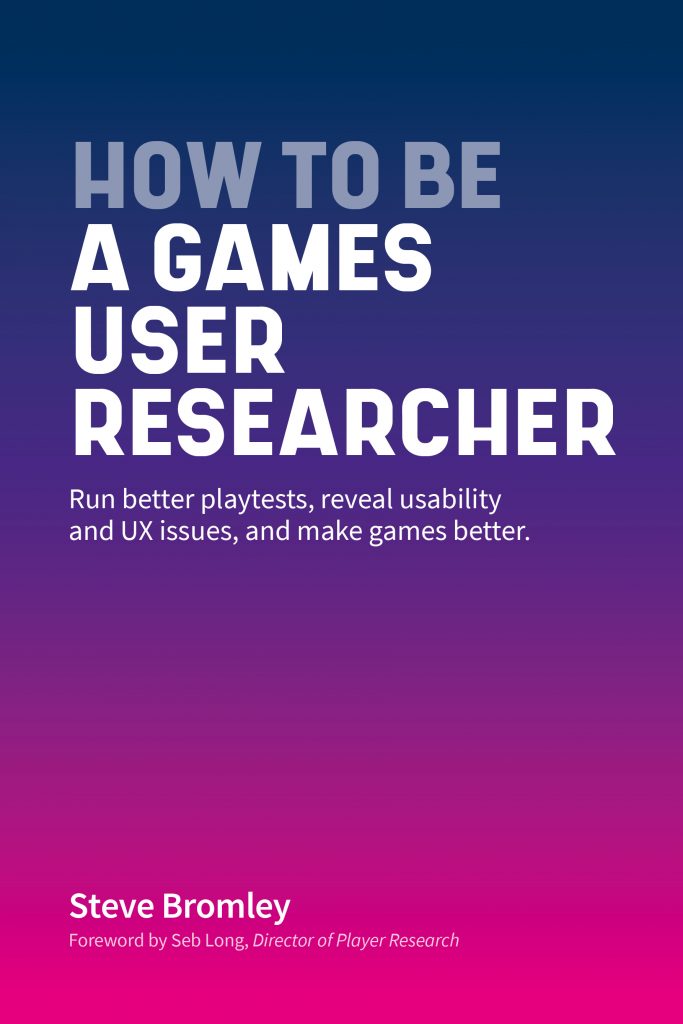
The book How To Be A Games User Researcher was written based on five years of running the mentoring programme for the Games Research & UX community. We placed over 150 students with mentors at top companies such as Sony, EA, Valve, Ubisoft, and Microsoft, and helped many people get their first job in games.
The book covers the core lessons that people wanting to join the games industry needed to know. The first part covers How do games get made, and where does UX research fit in. The book then dives into How to plan and run usability studies in games. The final section is career guidance – what skills do you need to demonstrate in an interview, and how to get the experience needed to get your first games job. The book will save you a lot of time by avoiding common mistakes, and helps you ace your games interview.
Quantifying the user experience – Jeff Sauro & James R. Lewis
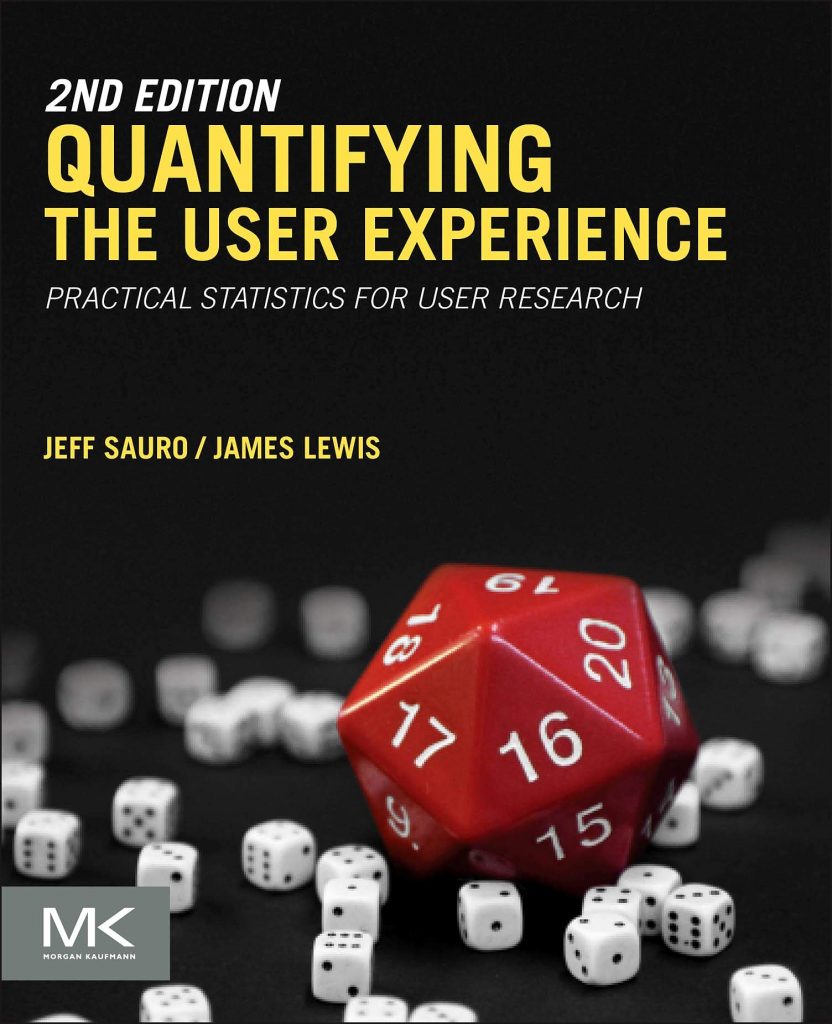
In games UX and user research, we’re often asked to compare things – player’s opinions about different levels, builds, or the perceived difficulty of each level. This requires drawing robust conclusions, often from a combination of qualitative and quantitative data.
If you haven’t done a course in statistics, this book is an essential reference for how to select and perform the right statistical test for your research objective – I personally find it helps give me confidence that I am being accurate and truthful when reporting quantitative data.
Learn more about Quantifying the user experience
Surveys that work – Caroline Jarrett
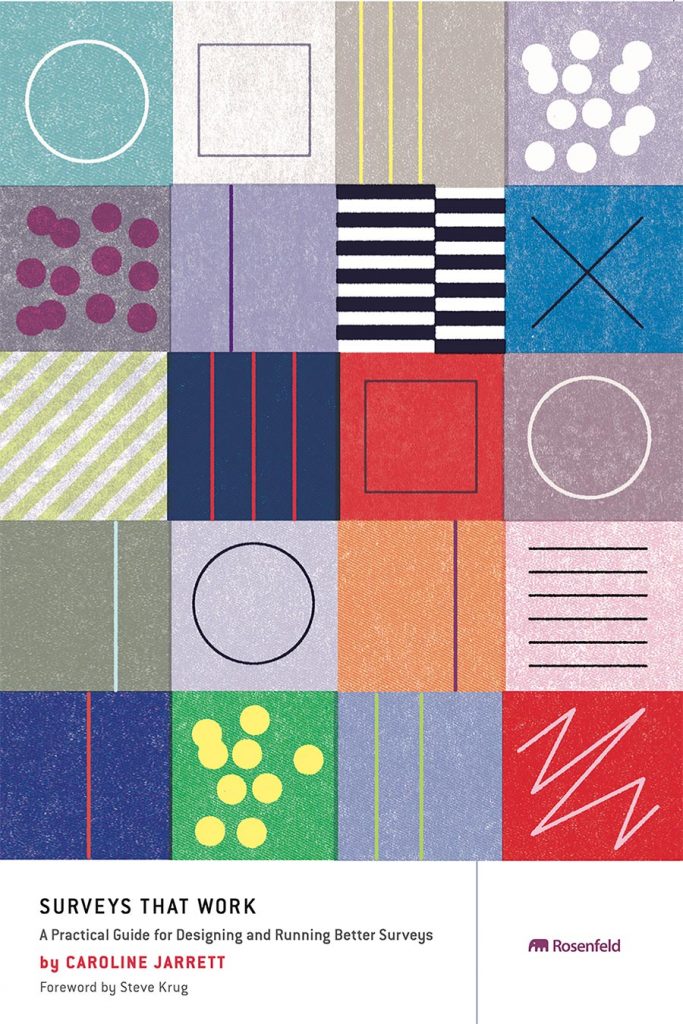
Games UX and user researchers are often required to write surveys to help quantify player sentiment. This is a skill that takes practice to avoid bias, leading questions, or restricting players from expressing their true thoughts.
This book, surveys that work, is a great resource for designing and running reliable surveys, that doesn’t start from the assumption that a survey is always the right thing to do. I found it helpful for improving my own skills at survey design, and increasing my confidence in assessing player opinions reliably.
Other books to be a better UX researcher or games UX designer.
Broaden your UX and user research skills by understanding game design & psychology.
The Gamers Brain – Celia Hodent
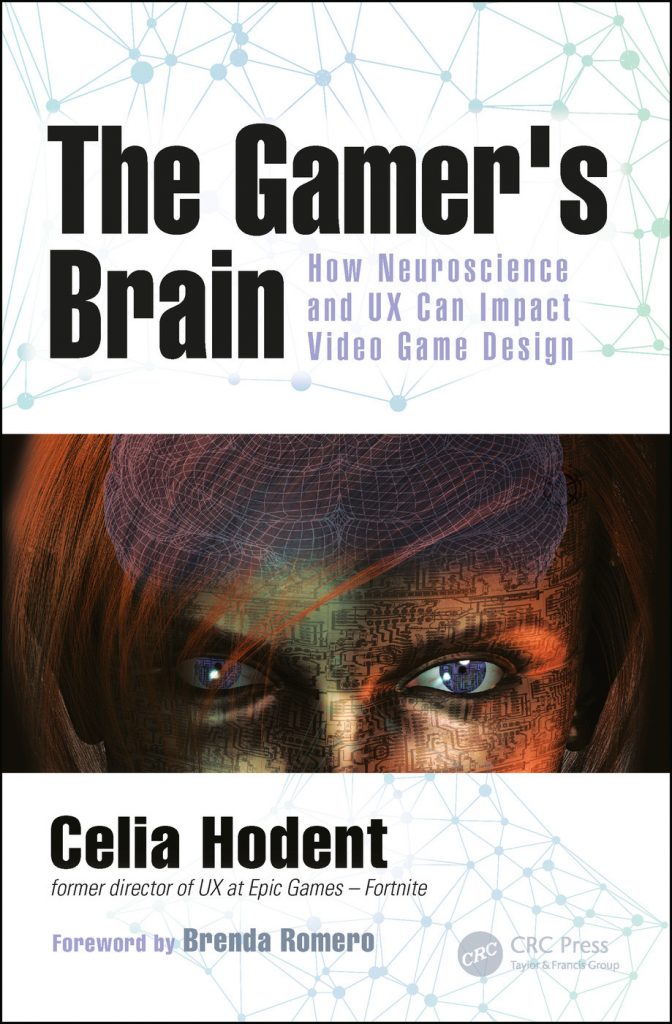
The Gamers Brain
Understanding player behaviour is easier when we have a good understanding of what players are thinking, and why. This allows us to properly explain why players act in the way they do (“why didn’t they see that prompt on the HUD”), and improves our odds of making the right change to fix the problem.
The Gamer’s Brain gives a comprehensive overview of how the brain works, and how this applies to game design – including looking at concepts such as attention, memory, motivation and emotion. The context allows us to understand and explain both usability issues, and what might make a game engaging or dull.
Learn more about The Gamers Brain
A Playful Production Process – Richard Lemarchand
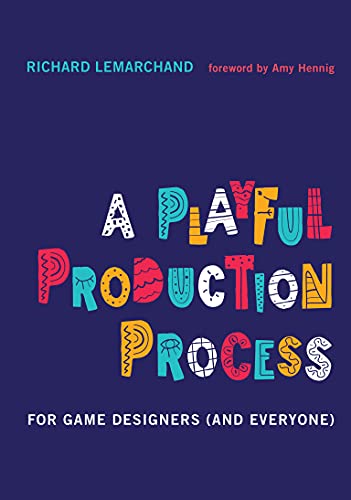
One of the biggest challenges for user researchers as their skills develop is identifying where they can have impact. Relying on teams to ask for help missing many opportunities when we can be testing our hypotheses about player behaviour, and helping our teams. I strongly believe that it’s really important for user researchers and UX designers to understand how games get made, and what other disciplines are doing, so that we can intercept decisions at the right time.
A playful production process describes ‘how games get made’ from game designer Richard Lemarchand, who worked on the Uncharted series of games at Naughty Dog. The book explains a complete production process for making games, and allows us to identify where user research and UX design can fit in.
Learn more about A Playful Production Process
The Art Of Game Design – Jesse Schell
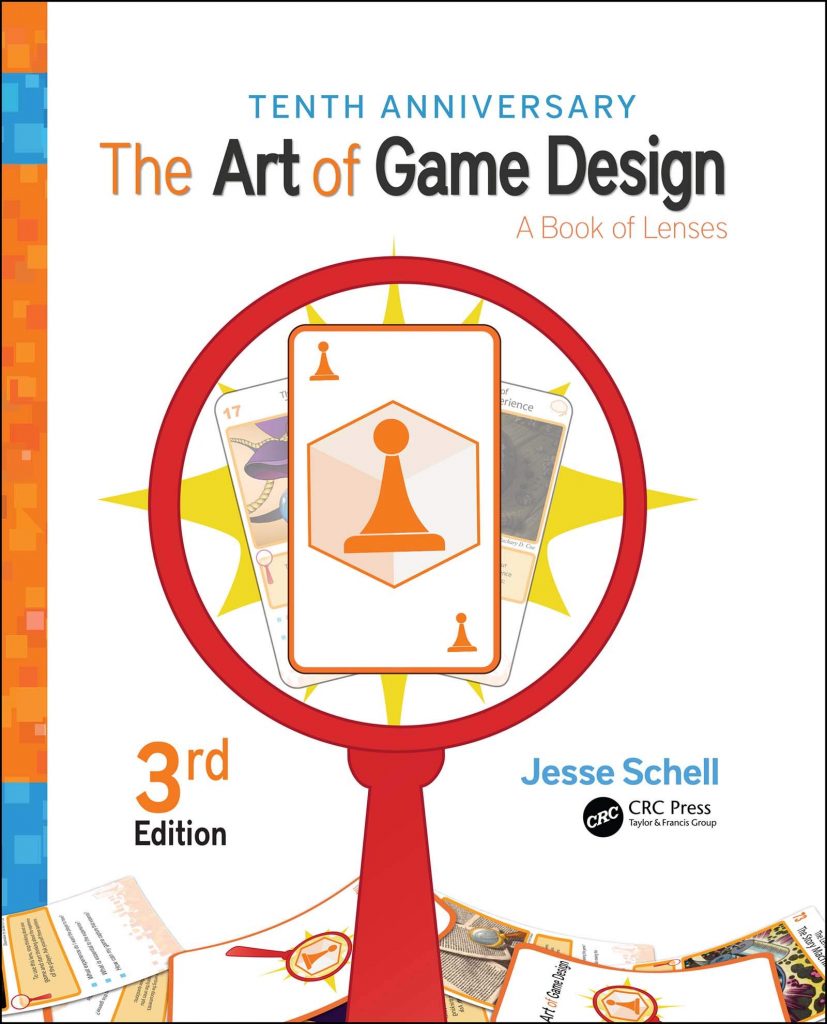
Game design is a complex art-form that has a huge crossover with the skills required for UX Design. When testing hypotheses or suggesting changes, it’s really important to understand the design intent – what was the designer trying to do.
This book covers almost 100 different perspectives that designers think about when making games, and different . Understanding how game designers make decisions, and growing your own skills at appreciating the different angles that each game design decision has to consider, will help you make more impactful decisions, and avoid making naive mistakes.
Learn more about The Art Of Game Design
Keep up to date with Games UX and User Research
Games UX and User Research is a competitive field. It’s important to keep up with the latest thinking to get your first industry job.
Every month I publish free lessons on games user research and UX. These teach people how to run high-quality user research studies, and how to start a career in the games industry. I also interview people working in the industry currently for their top tips and guidance.
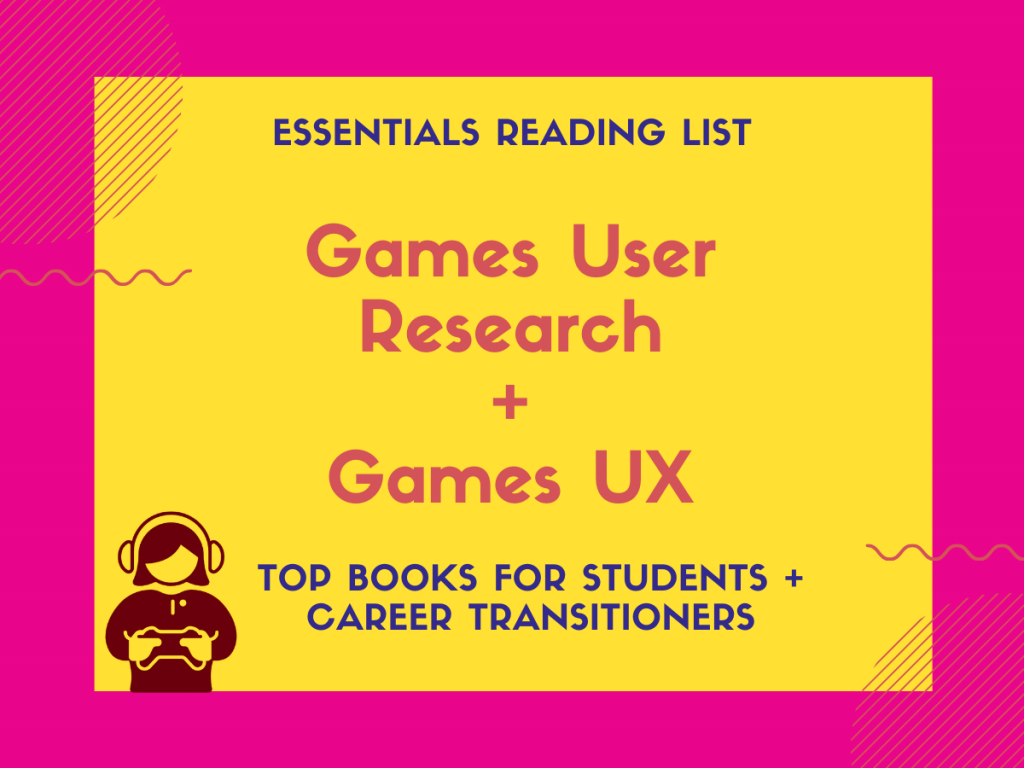
Leave a Reply